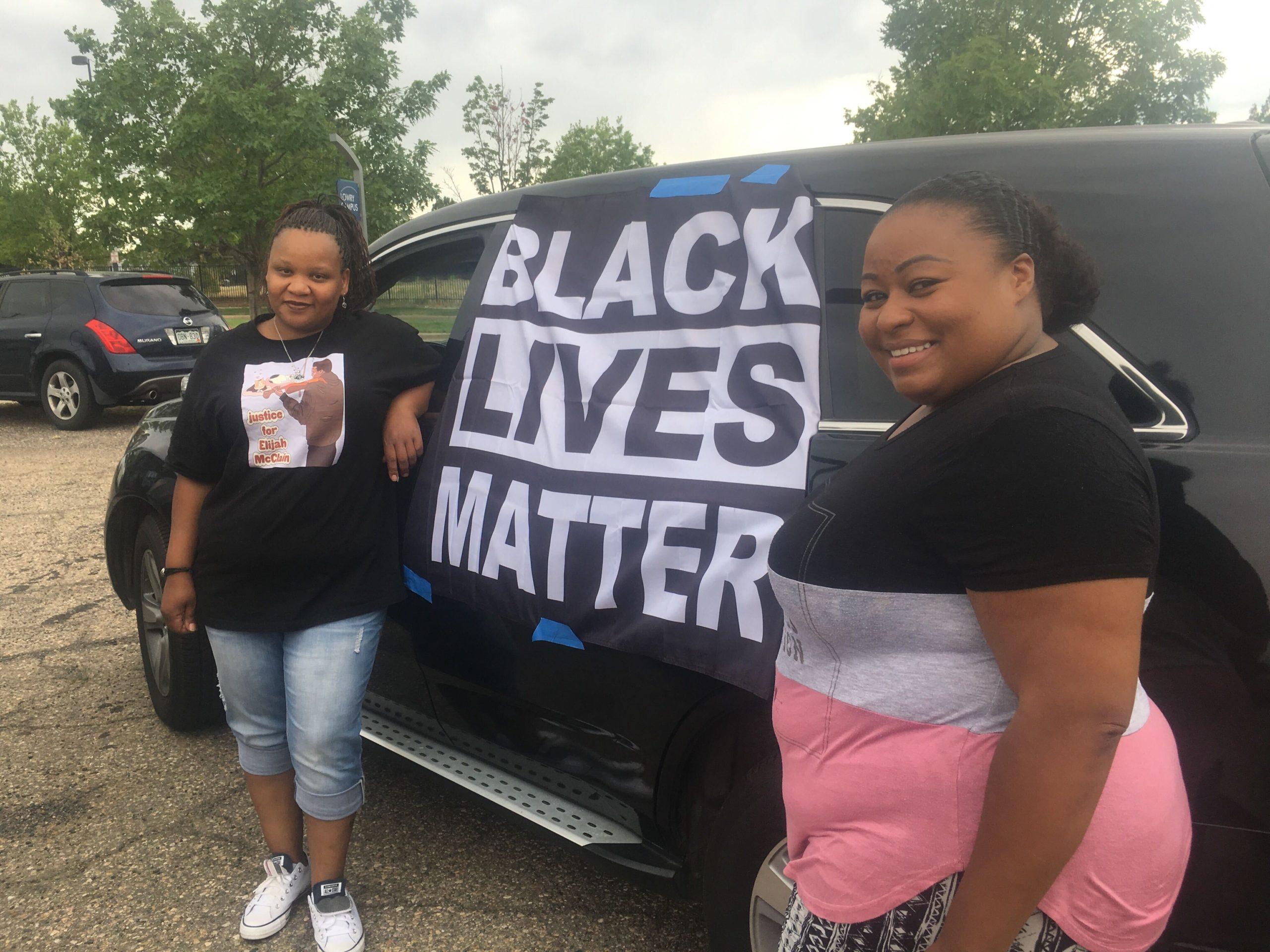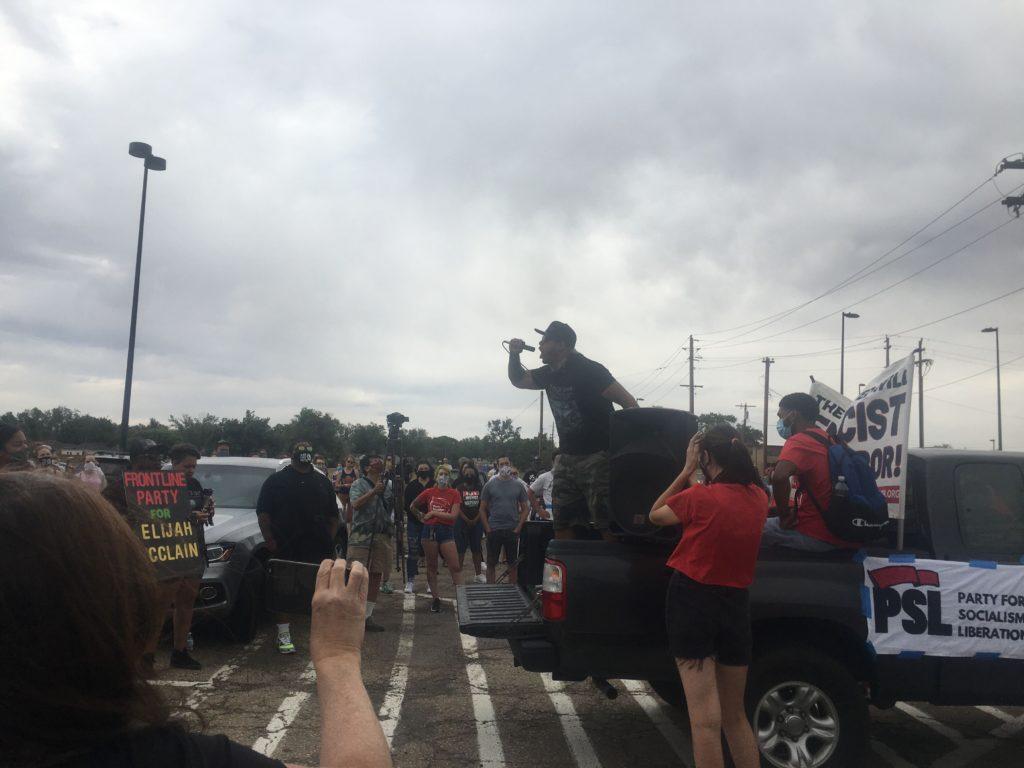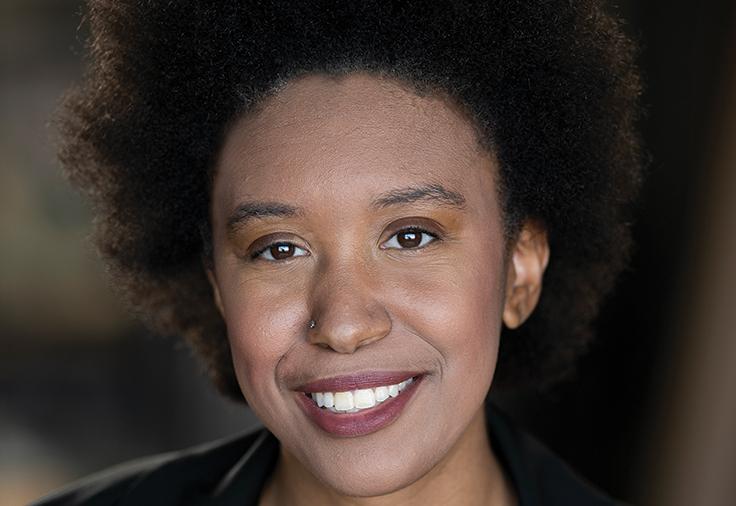
Toree Byrd, a lifelong Coloradan, is a regular at Black Lives Matter protests this year. Sunday’s car protest is the third one she’s been to so far.
Byrd said she has been a BLM supporter since Trayvon Martin was murdered in 2012 but never went to protests because of her social anxiety. This year, she challenged herself to get out and protest for Elijah McClain.
“We need all the bodies that we can get out here,” Byrd said. “When you’re willing to use your body to defend a black life -- even if you’re black yourself - using your body in that way is a powerful thing. You feel empowered, but you also feel sad that you even have to do that.”
Feelings like that is what led about 200 people to bring their vehicles for Sunday’s car protest for justice for Elijah McClain. The Frontline Party for Revolutionary Action, Aurora Copwatch, and the Party for Socialism and Liberation Denver co-hosted the protest.
Aurora police stopped Elijah McClain August 24, 2019, after someone called 9-1-1 to report a suspicious man because he was wearing a ski mask and waving his hands in the air, listening to music. Police say things escalated when he resisted commands. Officers placed McClain in a chokehold, now banned in Colorado. Paramedics injected McClain with ketamine and he went into cardiac arrest. He died days later after being declared brain dead. He was not suspected of a crime.

Valarie Moses is originally from Michigan but moved to Aurora with her two daughters and one son five years ago. This is their third protest together since May and she makes a point that her children come with her.
“It’s really important for me that they see this and that the ethics of fighting for what's right gets instilled in them early,” she said. “And that they remember this and that when they go on to their own lives, that they keep fighting for what's right.”
Moses said that it’s been particularly hard for her as a Black mother.
“It’s very heavy for me because you want things to get better and then you realize that they’re not and we moved out here,” she said. “It’s everywhere. So all I can do now is hope that they at least go out and try to make things better.”
She said she’s always afraid for her children. A few years ago, when her son was 13, he was playing on a school playground with a few friends after hours. The police stopped them and took them into custody. The police called her and she picked up her son.
“I was thankful that he was with a group of white boys because nothing happened,” Moses said.
Moses remembers the police telling her that they weren’t pressing any charges because he was honest and had good grades.
“And I thought, great ... so if he was on the cusp or if he was scared and lied about his name ... he would have just sent him down the pipeline,” she said.
Zebbodios Hall, originally from Texas but has lived in Colorado for eight years, also comes to these protests for familial reasons. His daughter is 4 years old and he doesn’t want her to also have this fight.
“It makes me think of my grandmother who died last year,” he said. “Before she died, she said ‘I’m finally going to be free and I’m going to be away from this.’ I don’t want my little girl saying that at 90, 14, or tomorrow. If I have to be out here every day doing something, that’s my job.”









